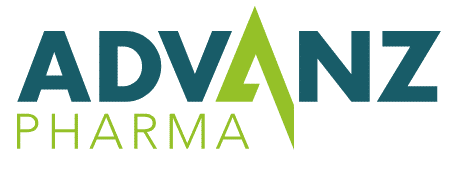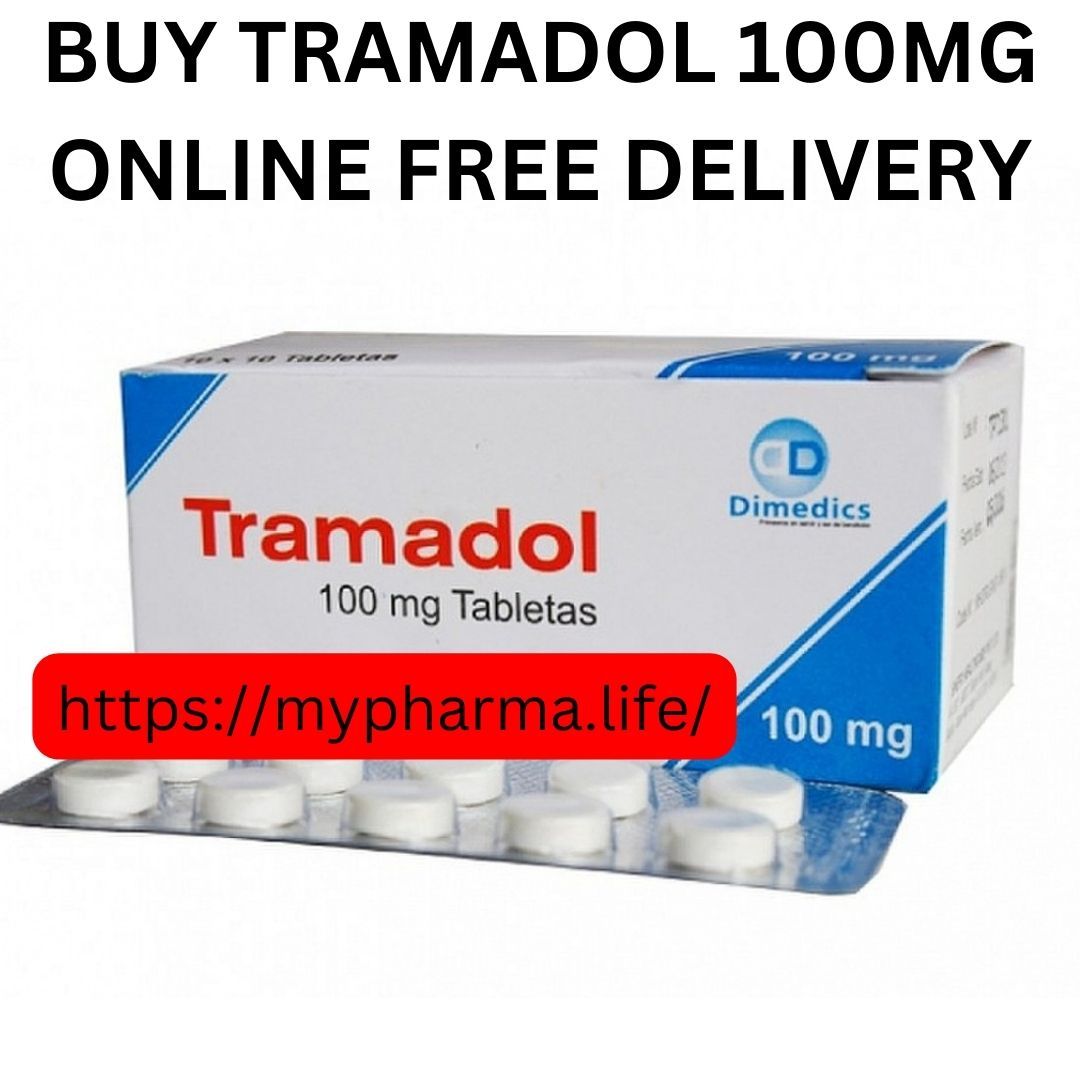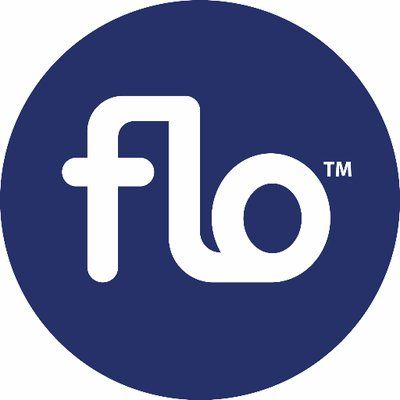预约演示
更新于:2025-05-07
Aspen Pharmacare Holdings Ltd.
更新于:2025-05-07
概览
标签
其他疾病
神经系统疾病
感染
小分子化药
合成多肽
聚合物
疾病领域得分
一眼洞穿机构专注的疾病领域
暂无数据
技术平台
公司药物应用最多的技术
暂无数据
靶点
公司最常开发的靶点
暂无数据
| 排名前五的药物类型 | 数量 |
|---|---|
| 小分子化药 | 33 |
| 聚合物 | 1 |
| 合成多肽 | 1 |
关联
38
项与 Aspen Pharmacare Holdings Ltd. 相关的药物作用机制 M3 receptor拮抗剂 |
非在研适应症 |
最高研发阶段批准上市 |
首次获批国家/地区 欧盟 [+3] |
首次获批日期2004-10-22 |
靶点 |
作用机制 PBPs抑制剂 |
非在研适应症- |
最高研发阶段批准上市 |
首次获批国家/地区 中国 |
首次获批日期2002-04-17 |
28
项与 Aspen Pharmacare Holdings Ltd. 相关的临床试验ACTRN12624000169549
Effect of Irrigation Bottle Size on Nasal Saline Irrigation Efficacy in Post-Sinus Surgery Patients: A Comparative Study.
开始日期2024-02-29 |
CTR20233881
受试制剂利丙双卡因贴片与参比制剂利丙双卡因乳膏在健康成年受试者空腹状态下的药代动力学对比研究
对比研究空腹状态下单次经皮外用受试制剂利丙双卡因贴片与参比制剂利丙双卡因乳膏在健康受试者体内的药代动力学特征和安全性
开始日期2023-12-19 |
申办/合作机构 |
ACTRN12622000366752
The efficacy of Larri® Oral Spray in the management of pepsin salivary test positive Laryngopharyngeal reflux disease.
开始日期2022-04-01 |
申办/合作机构 |
100 项与 Aspen Pharmacare Holdings Ltd. 相关的临床结果
登录后查看更多信息
0 项与 Aspen Pharmacare Holdings Ltd. 相关的专利(医药)
登录后查看更多信息
5
项与 Aspen Pharmacare Holdings Ltd. 相关的文献(医药)2021-01-01·Clinical and Applied Thrombosis/Hemostasis4区 · 医学
Fondaparinux Pre-, Peri-, and/or Postpartum for the Prophylaxis/Treatment of Venous Thromboembolism (FondaPPP)
4区 · 医学
Article
作者: Kropff, Stefan ; Scholz, Ute ; Bux-Gewehr, Irene ; Koscielny, Jürgen ; Linnemann, Birgit ; Lindhoff-Last, Edelgard ; Kappert, Günther ; Eberle, Sonja ; Heinken, Andreas ; Bramlage, Peter ; Dempfle, Carl-Erik
2008-01-01·Future HIV Therapy
For-Profit Policies and Equitable Access to Antiretroviral Drugs in Resource-Limited Countries
作者: Juneja, Sandeep ; Raghavan, Vijaya ; Sengupta, Aloka ; Nicolaou, Stavros ; Dionisio, Daniele ; Khanna, Arun Kumar ; Messeri, Daniela
Research & Reviews: Journal of Microbiology and Biotechnology
Possible role for heparin/heparinoid antithrombotics in the management of COVID- 19 infection
作者: Magnani, H. N.
76
项与 Aspen Pharmacare Holdings Ltd. 相关的新闻(医药)2025-04-30
·氨基观察
©氨基观察-创新药组原创出品作者 | 黄恺百济神州迎来好消息。4月29日,美国专利商标局宣布,艾伯维旗下的Pharmacyclics公司在803专利授权后复审程序中受到质疑的803专利的全部权利无效。在2023年6月13日,Pharmacyclics公司作为申诉方,在美国特拉华州地方法院,对百济神州及其全资子公司BeOne Medicines USA提出申诉。首款治疗RDEB基因疗法获FDA批准上市。4月29日,Abeona Therapeutics公司在其官网宣布,公司开发的基因疗法药物ZEVASKYN™获FDA批准上市,作为首个也是唯一一个基于自体细胞的基因疗法,用于治疗患有隐性营养不良型大疱性表皮松解症(RDEB)的成人和儿童患者。在过去的一天里,国内外医药市场还有哪些热点值得关注?让氨基君带你一探究竟。/ 01 /市场速递1)复旦张江盐酸多柔比星脂质体注射液降价幅度不低于35%4月30日,复旦张江公告称,决定自2025年5月1日起调整盐酸多柔比星脂质体注射液市场零售价格,相比此前中标价格降价幅度不低于35%。该药物2024年度销售收入约为人民币2.1亿元,占公司全年销售收入的29%。2)原阿斯利康刘谦加入爱施健,任中国区总经理4月29日,跨国药企爱施健通过内部邮件宣布,原阿斯利康中国呼吸消化事业部总经理刘谦正式出任爱施健中国区总经理。3)百济神州专利保卫战胜利4月29日,美国专利商标局宣布,艾伯维旗下的Pharmacyclics公司在803专利授权后复审程序中受到质疑的803专利的全部权利无效。在2023年6月13日,Pharmacyclics公司作为申诉方,在美国特拉华州地方法院,对百济神州及其全资子公司BeOne Medicines USA提出申诉。/ 02 /医药动态1)迪哲医药DZD6008片获临床许可4月30日,据CDE官网,迪哲医药DZD6008片获临床许可,拟联合治疗用于携带表皮生长因子受体(EGFR)突变的晚期非小细胞肺癌(NSCLC)患者。2)中科艾深注射用AS1501获临床许可4月30日,据CDE官网,中科艾深注射用AS1501获临床许可,适用于心肌梗死和心肌缺血再灌注损伤。3)宝船生物BC006单抗注射液获临床许可4月30日,据CDE官网,宝船生物BC006单抗注射液获临床许可,拟开展治疗特发性肺纤维化的研究。4)倍特药业瑞卢戈利片获临床许可4月30日,据CDE官网,倍特药业瑞卢戈利片获临床许可,拟开展治疗子宫内膜异位症相关疼痛的研究。5)百济神州注射用BGB-R046获临床许可4月30日,据CDE官网,百济神州注射用BGB-R046获临床许可,拟与替雷利珠单抗联合治疗晚期或转移性实体瘤。6)映恩生物BNT323获临床许可4月30日,据CDE官网,映恩生物BNT323获临床许可,拟开展治疗子宫内膜癌的研究。/ 03 /器械跟踪1)堃博生物一次性使用肺部射频消融导管获注册批件4月30日,据NMPA官网,堃博生物一次性使用肺部射频消融导管获注册批件。/ 04 /海外药闻1)首款治疗RDEB基因疗法获FDA批准上市4月29日,Abeona Therapeutics公司在其官网宣布,公司开发的基因疗法药物ZEVASKYN™获FDA批准上市,作为首个也是唯一一个基于自体细胞的基因疗法,用于治疗患有隐性营养不良型大疱性表皮松解症(RDEB)的成人和儿童患者。PS:欢迎扫描下方二维码,添加氨基君微信号交流。
基因疗法上市批准
2025-03-25
◆ ◆ ◆ ◆
Paul's Insight
2025年3月17日-3月23日
◆ ◆ ◆ ◆
本期药事动态(3月17日至23日)聚焦美国食品药品监督管理局(FDA)、美国注射剂协会(PDA)、欧洲药品管理局(EMA)、欧洲药品质量管理局(EDQM)、英国药品和医疗产品监管局(MHRA)、世界卫生组织(WHO)、国际人用药品注册技术协调理事会(ICH)以及国际制药工程协会(ISPE)近期发布的关键信息,通过一条“创新驱动,安全至上”的主线,展现全球药事监管机构在确保药品质量和患者安全的同时,积极拥抱创新、优化监管流程的努力。
美国FDA
严守质量红线,拥抱治疗创新
美国FDA近期动作频频,既展现了其对药品生产质量的严格把控,也体现了对创新疗法的积极接纳。
1. 批准诺华重磅药物
3月20日, FDA 批准了诺华公司(Novartis)的Fabhalta(iptacopan)用于治疗C3肾小球病(C3G),这是一种罕见的肾脏疾病。这是FDA首次批准用于治疗C3G的药物,也是Fabhalta继2023年获批用于阵发性睡眠性血红蛋白尿症(PNH)和2024年获批用于原发性IgA肾病(IgAN)之后的第三个适应症。Fabhalta的获批为C3G患者带来了首个针对疾病根源的治疗选择,有望成为新的治疗标准。
图:FDA批准诺华重磅药物
(参考:https://www.fda.gov/news-events/press-announcements/fda-roundup-march-21-2025)
2.创新疗法获批:Pembrolizumab的新里程碑
3月19日,FDA批准默沙东(MSD)的磅PD-1抑制剂Keytruda(pembrolizumab),用于局部晚期不可切除或转移性人表皮生长因子受体2(HER2)阴性胃或胃食管连接部(GEJ)腺癌成人患者的一线治疗。Keytruda是一种人源化的抗PD-1单克隆抗体,可以阻断PD-1与其配体PD-L1、PD-L2的结合,进而激活T淋巴细胞。此作用可能增强体内免疫系统侦测与抵抗肿瘤细胞的能力。
2014年9月,Keytruda首次获FDA批准治疗晚期黑色素瘤,并在后续获批作为一线疗法治疗转移性NSCLC患者。在中国,Keytruda也已获批多项适应症,涵盖黑色素瘤、非小细胞肺癌、头颈部鳞状细胞癌、结直肠癌、食管癌、肝癌等。
图:FDA批准默沙东(MSD)PD-1抑制剂
(参考:https://www.fda.gov/drugs/resources-information-approved-drugs/fda-approves-pembrolizumab-her2-positive-gastric-or-gastroesophageal-junction-adenocarcinoma)
3. 质量警钟长鸣:FDA多封警告信
3月18日,FDA针对分布于多个国家的多家企业发布了一系列警告信,再次强调了其对药品生产质量的高度关注和零容忍态度。
Vegewax Candleworx Ltd: 该加拿大公司因生产过程中的严重不合规问题收到警告信,主要涉及生产环境、操作流程和质量控制措施的缺陷,特别是设备维护和卫生标准执行不力。
图:FDA给加拿大一家公司的警告信
(参考:https://www.fda.gov/inspections-compliance-enforcement-and-criminal-investigations/warning-letters/vegewax-candleworx-ltd-675099-06142024)
Aspen Pharmacare Holdings Limited:该南非药企为无菌制剂的CMO工厂。FDA指出该公司在质量标准和无菌保障方面存在多项违规行为,包括未制定适当的杂质限度、无菌操作不当、烟雾研究和洁净室设计不足、计算机系统控制不当以及环境监控不充分等问题。
图:FDA给南非无菌制剂CMO工厂的警告信
(参考:https://www.fda.gov/inspections-compliance-enforcement-and-criminal-investigations/warning-letters/aspen-pharmacare-holdings-limited-701671-02242025)
Neva Global Grup Sanayi İc ve Dis Ticaret Anonim Şirketi: 该土耳其企业在生产、质量控制等环节被发现存在明显缺陷,包括检测流程不严、工艺验证不充分、稳定性研究不足以及质量部门未能履职等问题。
图:FDA给土耳其一家公司的警告信
(参考:https://www.fda.gov/inspections-compliance-enforcement-and-criminal-investigations/warning-letters/neva-global-grup-sanayi-ic-ve-dis-ticaret-anonim-sirketi-699000-03122025)
Rite-Kem Incorporated: FDA对该美国本土公司发出警告信,详细说明了其在药品生产过程中未能充分执行GMP,在产品检验、工艺验证、投诉管理以及员工培训方面存在严重漏洞。
图:FDA给美国本土一家公司的警告信
(参考:https://www.fda.gov/inspections-compliance-enforcement-and-criminal-investigations/warning-letters/rite-kem-incorporated-697272-01282025)
International Laboratories Corp: 该泰国检验实验室因产品测试、批次放行和伪造实验室记录等问题收到警告信,表明其质量管理体系存在缺陷,可能导致药品安全隐患。在检查中,FDA调查员发现了多起伪造实验室记录的例子。在检查期间,其实验室经理表示,公司伪造了几项未进行的实验室调查。一位高级质量保证经理也证实,实验室调查记录是为准备 FDA 检查而伪造的。
图:FDA给泰国检验实验室的警告信
(参考:https://www.fda.gov/inspections-compliance-enforcement-and-criminal-investigations/warning-letters/international-laboratories-corp-698522-03102025)
Advanced Pharmaceutical Technology:该公司为美国一家无菌生产企业。FDA指出该公司在无菌保障和质量管理上存在系统性问题。如FDA指出,公司缺乏适当的控制措施来确保无菌药品的无菌性。例如,公司依赖终端灭菌工艺实现无菌,但没有监测灭菌前的生物复核。此外,公司未能按照SOP的要求建立适当的系统来监测环境条件(包括执行频率),以确保生产区域适合无菌药品生产。
图:FDA给美国一家无菌生产企业的警告信
(参考:https://www.fda.gov/inspections-compliance-enforcement-and-criminal-investigations/warning-letters/advanced-pharmaceutical-technology-692576-03142025)
4.FDA内部管理面临挑战:工作人员近日被要求返回办公室
多家媒体报道,由于特朗普政府取消了许多联邦雇员的远程办公权利,FDA工作人员近日被要求返回办公室。一些返岗员工表示,他们面临着进办公室要排长队、办公室短缺等问题。同时,上个月被解雇的 FDA 试用期员工已复职,但他们将继续享受带薪行政假,直至另行通知。FDA面临的内部管理挑战,可能导致机构内部协作和信息传递出现混乱。这提醒监管机构在关注外部监管的同时,也需不断优化内部管理,以确保监管工作的顺利进行。
图:FDA工作人员近日被要求返回办公室
(参考:https://www.raps.org/News-and-Articles/News-Articles/2025/3/FDA-s-return-to-office-chaos,-probationary-workers)
美国PDA
前瞻性思考全球监管趋同
美国注射剂协会(PDA)近期发表文章,深入探讨了全球药品监管趋同的可能性及其对制药行业的深远影响。
全球监管趋同的探索与思考(2025年3月17日)
背景与意义: 文章回顾了近年来各国监管机构在药品审批及合规要求方面不断趋同的趋势,并指出其对于提升药品安全性和加速新药上市具有重要意义。
关键挑战与机遇: 文章分析了实现全球监管趋同过程中面临的挑战,如法律法规差异、文化与监管传统不同以及经济发展水平的差距,同时也探讨了其为制药企业带来的机遇,例如降低成本、加速国际合作等。
未来展望与建议: PDA提出了加强跨国监管机构合作、推动数据共享、采用风险导向监管模式以及鼓励国际标准制定的建议。
行业影响: 文章认为,实现监管趋同将有助于提高全球市场透明度,降低企业合规负担,并为患者提供更及时、有效的治疗选择。
图:PDA关于前瞻性思考全球监管趋同
(参考:https://www.pda.org/pda-letter-portal/home/full-article/global-regulatory-convergence-what-if)
PDA通过其前瞻性的分析,强调了国际合作在推动全球药品监管进程中的重要性,并为行业提供了应对监管变化的策略思考。
欧洲EMA
拥抱人工智能,擘画监管蓝图
欧洲药品管理局(EMA)近期在拥抱技术创新和制定未来监管战略方面展现出积极的姿态。3月20日, EMA正式认可首个利用人工智能技术辅助诊断炎症性肝病的工具。该工具名为AIM-NASH,可帮助病理学家分析肝活检扫描结果,以确定临床试验中 MASH(代谢功能障碍相关脂肪性肝炎;以前称为非酒精性脂肪性肝炎 NASH)的严重程度。这标志着监管机构对新兴技术的积极接纳,预示着未来人工智能在医疗影像和诊断领域将有更广阔的应用前景。EMA强调将持续关注人工智能在医疗领域的安全性和有效性。
图:EMA 批准首个人工智能工具用于诊断活检样本中的炎症性肝病 (MASH)
(参考:https://www.ema.europa.eu/en/news/ema-qualifies-first-artificial-intelligence-tool-diagnose-inflammatory-liver-disease-mash-biopsy-samples)
EMA这一举措表明,欧洲监管机构正积极适应医药科技的发展趋势,通过拥抱创新技术和优化监管战略,致力于在确保药品和医疗器械安全有效的前提下,加速科技成果转化和医疗服务创新。
欧洲EDQM
聚焦国际合作,提升质量标准
欧洲药品质量管理局(EDQM)近期发布的一则公告显示着其在推动国际合作和提升药品质量标准方面的新动向。3月19日, EDQM宣布将召开一次国际会议,重点讨论其CEP(欧洲药典适用性证书)程序。会议旨在为制药企业、监管机构和专家提供一个平台,共同探讨如何利用CEP程序进一步提高药品质量监管水平,并推动国际间的技术合作与信息共享。此次会议的召开将有助于加强各方对CEP程序的认识,推动制定更科学、有效的质量评估标准。EDQM通过组织国际会议,积极促进全球范围内对药品质量标准的理解和应用,进一步提升欧洲乃至全球的药品质量安全水平。
图:EDQM:聚焦国际合作,提升质量标准
(参考:https://www.edqm.eu/en/-/save-the-date-international-conference-on-the-edqm-s-cep-procedure)
英国MHRA
保障产品安全,拥抱分散制造
英国药品和医疗产品管理局(MHRA)近期在产品召回和探索新型制造模式方面展现出积极的监管行动。
1.产品召回警示:保障患者安全
苏州 Surgicare 一次性宫腔镜鞘召回通知:3月22日,MHRA发布召回通知,针对苏州 Surgicare 公司(Suzhou Surgicare Medical Technology Ltd)生产的一次性宫腔镜鞘,原因是其CE认证已被撤销,存在合规性问题,可能影响产品安全性和临床使用效果。这体现了MHRA对医疗器械质量和患者安全的高度重视。
图:苏州 Surgicare 一次性宫腔镜鞘召回通知
(参考:https://www.gov.uk/drug-device-alerts/suzhou-surgicare-disposable-hysteroscopy-sheath-recall-due-to-withdrawn-ce-certificate-dsi-slash-2025-slash-001)
2.前瞻性监管:探索分散式制造模式
3月19日,MHRA在其官网更新了“分散制造(Decentralised Manufacture Hub)”集合页面,汇总了与分散式制造模式相关的政策信息、监管指南及动态更新。此举旨在推动分散式生产模式在药品制造领域的应用,提高供应链的韧性、降低风险并加快应急响应。MHRA通过这一平台,向行业传递最新的监管思路和支持措施,确保新兴制造模式在保证药品安全与质量的前提下顺利融入市场。MHRA的行动既体现了对现有产品质量问题的及时响应,也展现了其对未来药品生产模式的积极探索和监管适应性调整。
图:MHRA探索分散式制造模式
(参考:https://www.gov.uk/drug-device-alerts/suzhou-surgicare-disposable-hysteroscopy-sheath-recall-due-to-withdrawn-ce-certificate-dsi-slash-2025-slash-001)
WHO
优化预认证流程,加速药品可及性
世界卫生组织(WHO)近期宣布对其药品预认证项目(PQTmed)的简略预认证途径进行扩展和优化,旨在加速高质量药品的预认证流程,提高全球公众获得安全、有效药品的速度。WHO的这一举措将对全球制药行业产生一定影响,推动各方在确保产品质量和安全的同时,更快响应市场需求,提高药品的可及性。
图:WHO优化预认证流程
(参考:https://extranet-who-int.libproxy1.nus.edu.sg/prequal/news/pqtmed-expanded-abridged-prequalification-pathways)
ICH
推进技术规范,统一申报标准
国际人用药品注册技术协调理事会(ICH)近期在推进国际药品申报标准和技术规范更新方面取得了进展。
eCTD v4.0 Q&A v1.9达到ICH流程第四步(3月20日)
背景与意义: eCTD格式作为全球药品申报的标准化工具,其问答指南的更新对于确保提交文件符合最新技术和监管要求至关重要,有望在全球范围内推动申报效率的提升。
关键内容与后续步骤: 更新后的问答文件进入专家审查和多方协商阶段,将广泛征求监管机构、制药企业及其他利益相关者的意见。
图:eCTD v4.0 Q&A v1.9 已达到 ICH 流程的第 4 步
(参考:https://www.ich.org/news/ectd-v40-qa-v19-reaches-step-4-ich-process)
ICH M11更新演示文稿上线(3月20日)
更新背景与目的: ICH M11指南文件的技术规范更新旨在反映最新科学进展和监管实践经验,此次演示文稿详细说明了更新范围、修订动因及预期效果。
图:ICH M11更新演示文稿上线
(参考:https://www.ich.org/news/ich-m11-updated-technical-specification-step-2-presentation-now-available-ich-website)
ICH的持续努力在于优化和统一全球药品监管要求,提升申报效率,并最终确保药品质量和安全。
ISPE
应对数字转型,展望制药就业未来
国际制药工程协会(ISPE)近期关注美国制药制造业在数字化转型和自动化技术普及背景下,如何确保就业岗位具备持续竞争力和适应未来发展的能力。
行业现状与转型需求: 文章指出,新技术在制药生产流程中的应用对现有工作岗位的技能要求提出了更高标准,监管环境的变化和全球化竞争也使得企业必须在技术创新与人才培养之间找到平衡。
技能升级与人才培养: 文章强调了员工技能升级和跨领域培训的重要性,建议制药企业重新规划人才发展战略,培养新型复合型人才。
监管与政策导向的影响: 文章分析了不断演进的监管要求对制药制造业的影响,并呼吁监管部门与企业之间加强沟通与协作,共同制定支持创新又兼顾安全的政策措施。
未来展望与建议: 文章提出,未来的制药制造业将呈现岗位结构调整、技能需求升级和工作模式转变的综合特征,建议企业和监管机构提前布局,通过技术革新、流程再造和人才储备,构建一个既能应对未来挑战又能抓住新兴机遇的行业生态系统。
ISPE的文章为美国制药制造业未来的就业趋势提供了前瞻性分析,并为如何通过技术创新与人才培养实现行业可持续发展指明了方向。
图:ISPE应对数字转型,展望制药就业未来
(参考:https://ispe.org/pharmaceutical-engineering/ispeak/futureproofing-us-pharma-manufacturing-jobs)
01
综上所述,全球各大药事监管和行业机构近期的一系列举措、思考,无不体现着“创新驱动,安全至上”的核心理念。从对创新疗法的积极审批到对生产质量的严格把控,从拥抱人工智能等前沿技术到前瞻性地探索未来监管模式,全球药事监管体系正不断进化,以适应快速发展的医药行业和日益增长的健康需求。通过加强国际合作、优化监管流程、提升技术标准,各国监管机构正携手共进,共同构建一个更加安全、高效、可靠的全球药品监管体系,最终目标是护佑全人类的健康福祉。
END
声明:本文仅代表作者个人观点,不代表任何组织及本公众号立场,如有不当之处,敬请指正。如需转载,请注明作者及来源:蒲公英Biopharma。
近期活动课程推荐
线上
3月26日 深度解析多样化抗体平台,突破抗体工艺瓶颈
线下
3月28日 邀请函 | 春启未来:创新药出海与工艺革新论坛
线下
4月11日 4月上海丨智药领航行—医药质量数字化赋能研讨会
申请上市上市批准
2025-03-20
During an inspection of Aspen Pharmacare's plant in Gqeberha, South Africa, the FDA observed operators using their gloved hands rather than appropriate sterile tools to remove jammed bottles from a product line, among other manufacturing slights.
After rising to prominence during the COVID-19 pandemic, South African drugmaker Aspen Pharmacare has landed in the FDA's crosshairs thanks to a recent inspection that uncovered problems at one of the company's production plants. Aspen, the largest drugmaker on the African continent, was slammed last month in a warning letter by the FDA citing sterility issues that could lead to microbial contamination. The FDA posted the document on its website Tuesday.The rebuke follows a Sept. 9-17 inspection of the company's manufacturing site in Gqeberha, South Africa. In assessing the site's conditions, the agency concluded the company failed to adopt scientifically sound laboratory controls needed to meet regulatory standards. The plant that was under review specifically produces eye drops and other sterile medicines. The warning letter was issued to Aspen on Feb. 24. Earlier in the month of February, the agency placed certain Aspen products on its Import Alert list, according to the document. Digging deeper into Aspen's manufacturing infractions, the company failed to perform impurity testing prior to the release of an unspecified product, according to the FDA. Further, the company didn’t establish scientifically justified specifications to monitor impurities during stability testing of products containing two particular active pharmaceutical ingredients used in eye drops, the FDA said in its letter. During the inspection, the FDA also observed operators using their gloved hands rather than appropriate sterile tools to remove jammed bottles from a product line. Workers were also seen blocking airflow from a HEPA filter by placing their hands directly over open sterilized bottles without removing them from the aseptic filling line.These issues were not isolated problems, as the company told the FDA that it identified contamination in two media fill batches produced on a pair of aseptic filling lines at the facility back in 2022. “You identified the root cause as poor aseptic behavior,” the agency said in its letter. “These contamination events along with the poor aseptic practices observed during our inspection indicate your aseptic manufacturing operations may lack adequate control.”FDA inspectors also noted that a large door leading to the outside was left open on “numerous occasions” for ventilation purposes. This practice could expose empty sterile containers to exterior conditions, the FDA said. Aspen was additionally cited for not having appropriate controls over computer or related systems to ensure that only authorized personnel can make changes in master production and control records. The FDA said Aspen also failed to institute an adequate system for monitoring environmental conditions in aseptic processing areas at its plant. Aspen has subsequently suspended production of all drugs for the U.S. market. Aspen hit the international scene during the COVID-19 pandemic when it secured a license to distribute, price and brand Johnson & Johnson’s COVID-19 shot in Africa. However, the deal eventually soured due to a lack of demand for the vaccine.Undaunted, the company in late 2023 expanded its global footprint with a $100.3 million agreement to buy Sandoz’s China operations, which came shortly after Sandoz was spun off by its parent Novartis. Aspen was also tapped by Novo Nordisk in 2023 to help produce human insulin for Africa, using—in part—some of the sterile infrastructure the company previously established to make COVID vaccines.

疫苗并购引进/卖出紧急使用授权
100 项与 Aspen Pharmacare Holdings Ltd. 相关的药物交易
登录后查看更多信息
100 项与 Aspen Pharmacare Holdings Ltd. 相关的转化医学
登录后查看更多信息
组织架构
使用我们的机构树数据加速您的研究。
登录
或

管线布局
2025年11月12日管线快照
管线布局中药物为当前组织机构及其子机构作为药物机构进行统计,早期临床1期并入临床1期,临床1/2期并入临床2期,临床2/3期并入临床3期
临床申请批准
1
1
临床3期
申请上市
1
33
批准上市
其他
2
登录后查看更多信息
药物交易
使用我们的药物交易数据加速您的研究。
登录
或

转化医学
使用我们的转化医学数据加速您的研究。
登录
或

营收
使用 Synapse 探索超过 36 万个组织的财务状况。
登录
或

科研基金(NIH)
访问超过 200 万项资助和基金信息,以提升您的研究之旅。
登录
或

投资
深入了解从初创企业到成熟企业的最新公司投资动态。
登录
或

融资
发掘融资趋势以验证和推进您的投资机会。
登录
或

生物医药百科问答
全新生物医药AI Agent 覆盖科研全链路,让突破性发现快人一步
立即开始免费试用!
智慧芽新药情报库是智慧芽专为生命科学人士构建的基于AI的创新药情报平台,助您全方位提升您的研发与决策效率。
立即开始数据试用!
智慧芽新药库数据也通过智慧芽数据服务平台,以API或者数据包形式对外开放,助您更加充分利用智慧芽新药情报信息。
生物序列数据库
生物药研发创新
免费使用
化学结构数据库
小分子化药研发创新
免费使用



